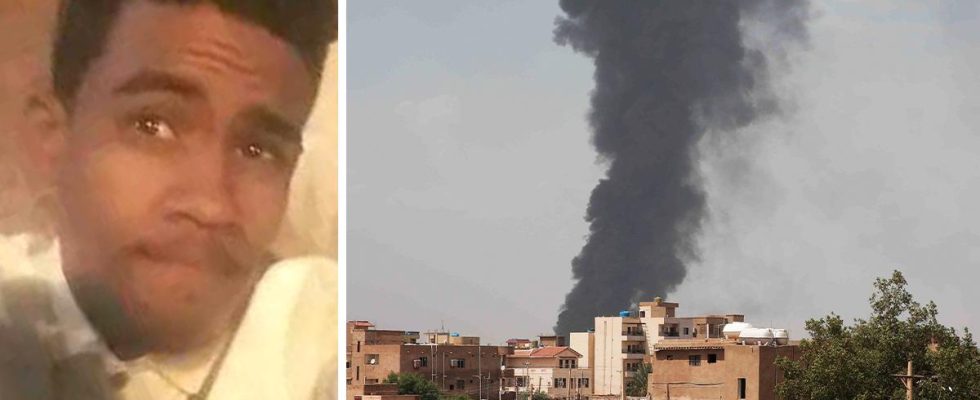Fierce fighting has turned the capital, Khartoum, into a battlefield.
More than 4.6 million people have been forced to flee.
– I am very scared, it is a continuous shelling, says 19-year-old Wdah, who is in the city.
There is still heavy fighting between the Sudanese army and the RSF paramilitary army in Sudan.
According to Amnesty International, extensive war crimes are being committed in the conflict. This includes, among other things, sexual violence against girls as young as 12, but also attacks against civilian targets.
Many residents live without water and electricity, and the country’s healthcare system has nearly collapsed.
“Very dangerous”
Wdah’s parents and four younger siblings have fled Khartoum. But he remains in the city. As the oldest son in the family, the 19-year-old needs to stay to guard the home.
– We have many things here at home. Several houses nearby have been destroyed and looted, he tells Aftonbladet.
Wdah used to work as a bus driver but since the conflict broke out he has been unemployed.
– It is very dangerous here, many people have fled. It’s empty here, Khartoum has become a ghost town.
Although many have fled, civilians remain in the city – young men protecting their homes, elderly people and poor people who cannot leave Khartoum, says Wdah.
– At dawn we go to the market to shop. They hurry back home before the shooting starts. The city has collapsed, there is no functioning police or any functioning authorities. Schools have closed and people have not been able to work.
Millions on the run
More than 4.6 million people have been forced to flee, according to the UN migration agency. Over 3.6 million people have fled to safer areas within the country and around one million people have sought refuge in neighboring countries.
One of those who have been forced to flee is 23-year-old Eltjany. Before the conflict, he lived with his family in Khartoum. But about two weeks ago he left town.
On April 15, the day the conflict broke out, Eltjany was at work.
– That day started as usual, everyone went to their jobs in the morning. But suddenly we found ourselves in a war. It became a chaotic situation with airstrikes in the sky and gunfire on the ground. Everyone panicked and tried to get home, he says, adding:
– I couldn’t believe my eyes. A war broke out and I still didn’t believe it. I hurried home.
“We guarded the houses”
A month later, his mother and siblings left Khartoum. Eltjany needed to stay with his father to guard their home.
– We guarded the houses in the area with some guys who were also left. I tried to be positive and thought it’s only a matter of a few days then they’ll be back. But I began to feel a great loss, it was empty at home. I felt that there is nothing better than having his family by his side.
For four months, the situation just got worse and worse every day, says Eltjany.
– We heard gunfire and airstrikes at close range. We ran into the rooms and hid under the bed. I thought several times that I will never see my mother and siblings again.
Finally, Eltjany and his father left the city.
– The family was reunited, it was a very wonderful feeling. We left the house and we don’t know what happened to it. It is much safer and more secure here, but there are many refugees here who have nowhere to go. Many sleep on the streets, in schools, in hospitals and live on donations.
Wdah also plans to leave Khartoum.
– Nothing is more valuable than life, he says.
500 children have died of starvation
So far, the armed conflict has claimed at least 4,000 lives, according to the UN.
Since April, 500 children have starved to death. According to Save the Children, at least 31,000 children lack access to treatment for malnutrition and related illnesses since the charity was forced to close 57 of its nutrition centers in Sudan, reports AP.
